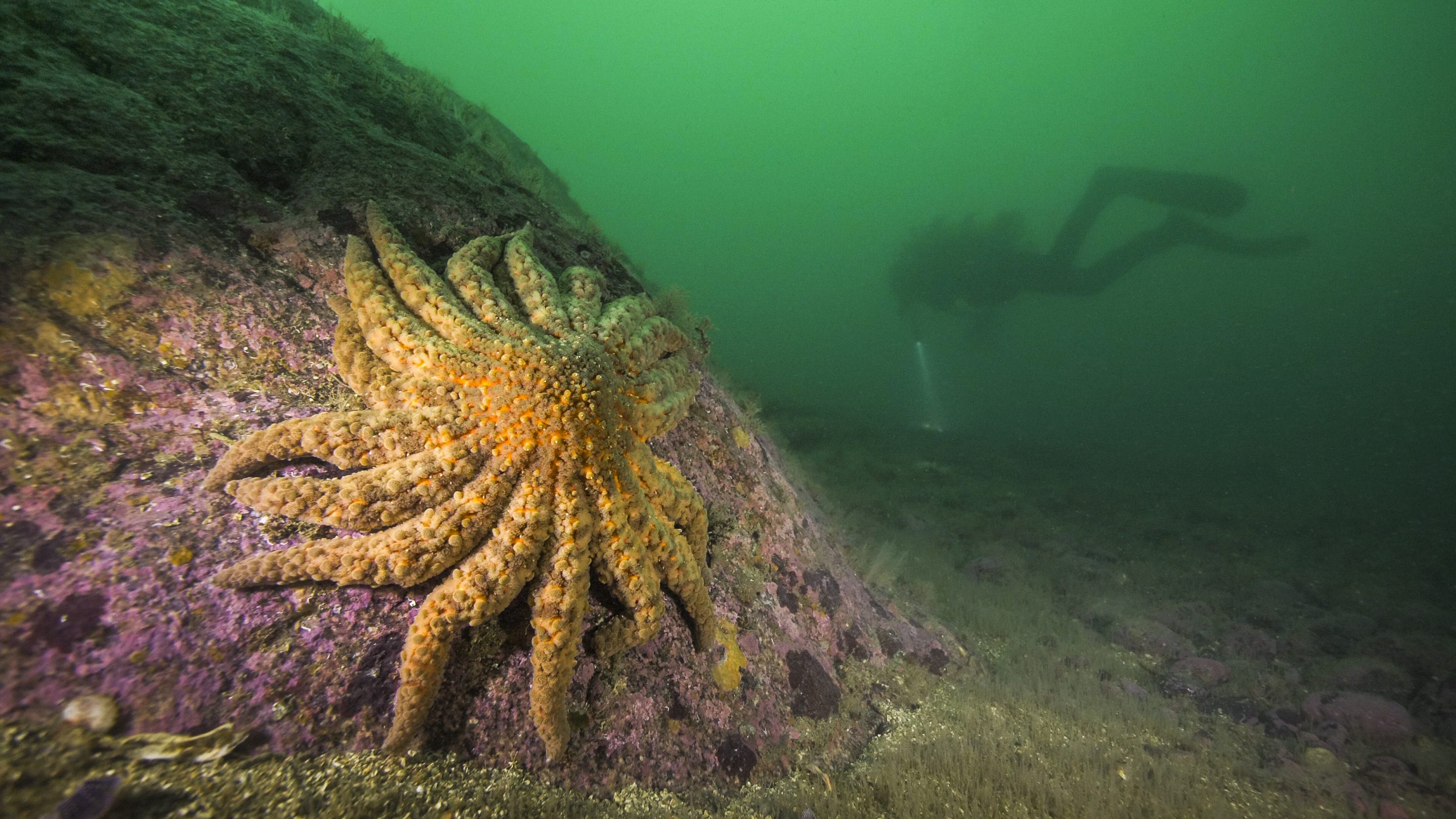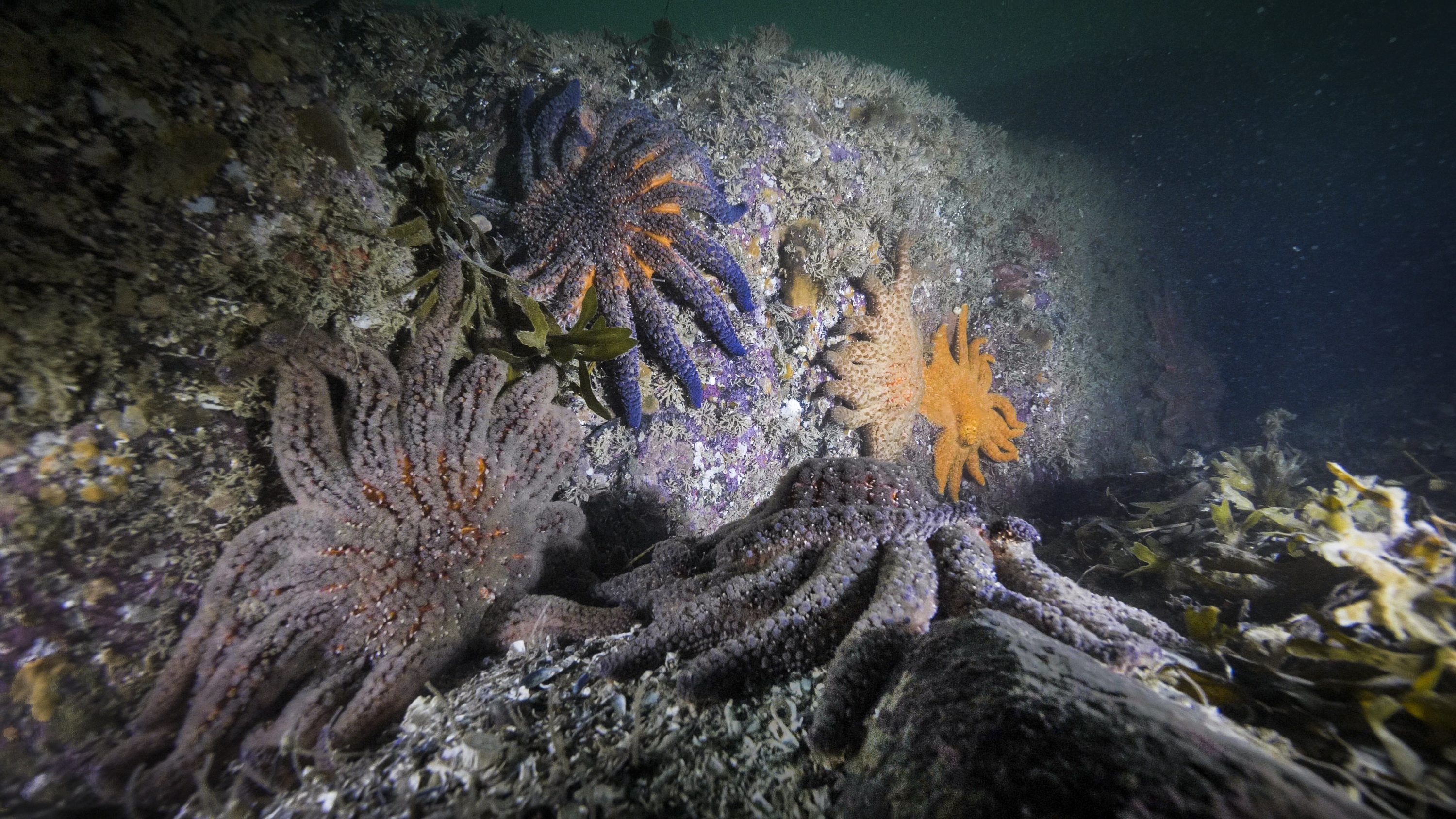<<
Template for a specific “Project” (Oyster, SSHI, etc).
Figure on right
Text: Problem, methods, findings, list of past and present lab members involved in project
>>
Giant viruses
Oyster
Sea Star Wasting Disease
Novel and widespread disease outbreaks that are driving declines in host species have increased globally and are predicted to increase with the changing environment. Starting in 2013, a mass sea star mortality event extended from Baja California to Alaska, known as sea star wasting disease. Initial metagenomic and experimental work suggested that mortality was caused by a virus, although the causative agent remains elusive.


Prior to the sea star wasting disease outbreak in 2013, healthy and abundant populations of sunflower sea stars (Pycnopodia helianthoides) could be found from Baja California, Mexico to Alaska. Photo credit: Grant Callegari (Hakai Institute).
The global population of the sunflower sea star (Pycnopodia helianthoides) declined by 90.6% in the epidemic and is now listed on the IUCN red list as critically endangered (Gravem et al. 2020). More knowledge of the causative agent and mechanisms of disease resistance is needed to support recovery and conservation of imperilled P. helianthoides. In collaboration with researchers at The Hakai Institute, The Nature Conservancy, and Friday Harbor Laboratories, this project involves transcriptomic and metagenomic studies on microbial discovery and disease resistance in sea stars.


Symptoms of sea star wasting disease include limb twisting/curling (above) and lesion development, leading to tissue degeneration and arm autonomy (below). Photo credit: Grant Callegari (Hakai Institute).
Past and present lab members involved in this project
Melanie Prentice, Jan Finke, Amy Chan & Curtis Suttle
Zooplankton

Paraeuchaeta sp. from 2022 Line P research cruise – Northeast Pacific Ocean. Image from Alastair Roberts.
Zooplankton link primary production to larger animals, regenerate nutrients through grazing and play an integral role in the biological carbon pump. Despite their importance in coastal and pelagic food webs, the causes of non-consumptive mortality in zooplankton are not well established and very few of their viruses have been characterised. The zooplankton virus project focuses on uncovering DNA and RNA viruses in coastal and pelagic copepods, amphipods and euphausiids using molecular methods. In addition to the discovery portion, we aim to link viruses to disease and mortality in these hosts.
Past and present lab members involved in this project
Tianyi Chang, Alastair Roberts, Jan Finke, Amy Chan and Curtis Suttle